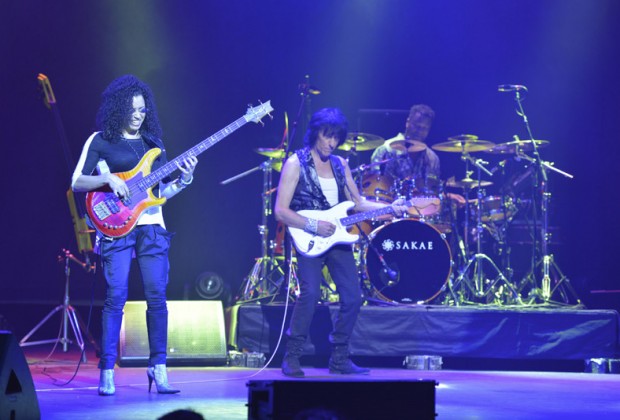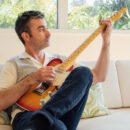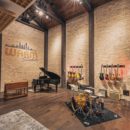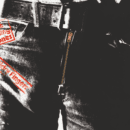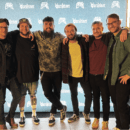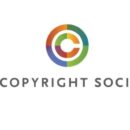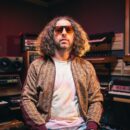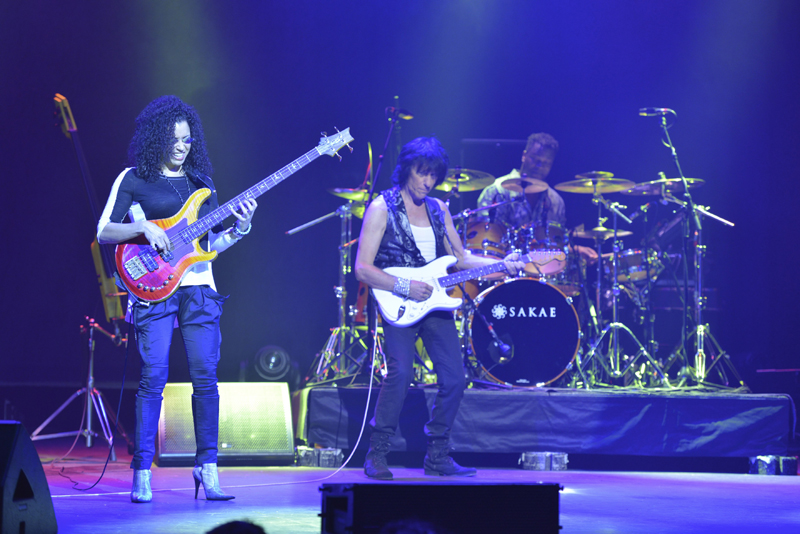
Rhonda Smith
Contact: Melissa Dragich-Cordero – Mad Ink PR, [email protected]
Canadian bassist Rhonda Smith’s resume reads like a Who’s Who of popular music. She’s provided support for luminaries such as Prince, Chaka Khan, Patrice Rushen, Beyonce, and many more. Her latest gig for the last few years has been with the incomparable Jeff Beck. With two solo CDs under her belt and a busy touring schedule, Smith is certainly a player on the rise.
How have you become a better musician?
Practice like crazy, my dear, and respect the music. I try to give it 120 percent when I learn someone else’s music. It’s the same as I would want from someone I would hire for my project.
What are your impressions when you hear things you’ve done from years past?
Sometimes I like it. Sometimes I might think that I would play something differently. I’m proud of everything I’ve done and the opportunities I’ve had. But as musicians we’re never really satisfied or else we’re never gonna go any further.
Discuss some of the gear you’re currently using and why?
I was introduced to the Gary Grainger model PRS bass about 2-3 years ago at their shop in Burbank. I needed a loaner bass, and Gary was nice enough to let me borrow his and see how I liked it. It had different kinds of tones that my other basses didn’t have, and I was very much attracted to it. I am also a fan of 24-fret necks and being able to stay in tune for traveling, and this bass was great for that. So I’ve been endorsing them.
Right now I’m a little in flux about what kind of amp I’m going with. But I use a ton of effects, which started when I was working with Prince. I use MXR phasers and the Mutron. I use Dunlop delays. With Jeff Beck I use three different instruments with three different output levels; an acoustic, a fretless and an electric. I also use a Danelectro Fab Tone distortion pedal, a Seymour Duncan DОjИ vu tap delay as well as some other MXR and T.C. Electronics gear. It’s a big board!
One thing I’ve noticed is that you are as fluent on the acoustic upright bass as you are the electric bass guitar.
Thank you. I’ve always loved acoustic. I was able to be around a lot of jazz and fusion music when I was first starting to play in my teens in Montreal, Canada. And I’ve been very lucky that I’ve always been able to bring it along with the major artists I’ve worked with for extended periods of time. I think I was the only bassist that played acoustic with Prince when I worked with him in the New Power Generation.
Who are you influenced by, and who are you listening to now that you really like?
I’m really in a jazz phase because I’m trying to go back to bebop and learn a lot. The Miles Davis Legacy collection Kind of Blue was on my rotation for a long time. I’ve been listening to a lot of pianist Bill Evans and just think his bass player was incredible. He liked to give the bass player a lot of space. When I was younger I started as a rock player. I love Stanley Clarke, Jaco Pastorius, Geddy Lee and Chris Squire too.
What’s your worst onstage mishap?
I was doing this Jaco Pastorius tune in Montreal and my fingers cramped up. My hand just locked up and wouldn’t move!
Conversely, can you recall a stage highlight or two?I’ve had some absolutely memorable and one-of-a-kind experiences with Prince and Jeff Beck, of course. I got to play for Obama with Jeff. I’ve been all around the world with these artists. I’ve been very blessed.
What is the most significant innovation you’ve seen in bass technology in the past decade?
I’d probably have to say some of the basses. Like this PRS bass has an incredible preamp in it. They didn’t have those years ago. Some of the amps, like Aguilar, are incredible, with their abilities to be so lightweight but still get this great sound. That wasn’t there 10 or 20 years ago as much. Power, size and weight have been a major improvement.
What kind of advice do you share with aspiring players?
You gotta do it because you love it and it really will love you back. I don’t think people who are successful in this business and continue to work got into it to make a lot of money or thought they were gonna play with this person or that. They picked up the instrument because it brought them a completion or some kind of love they were missing. I don’t play every day, but if I don’t play bass for a certain amount of time, I feel imbalanced because I feel it is an extension of me. So, if you’re really genuine about it you’re gonna find your way as a musician.
Do you have any special requirements for gear maintenance you ask of your roadie or guitar tech?
Not really. I just plug in and play and want it to work. Depending on the size of the show, I’ve shared techs with other players. It can get very complicated at times. We’ve done very large shows where we don’t even get a sound check. When we played Crossroads festival with Jeff Beck we went out in front of thousands of people and you just hope your stuff works.
I have a lot of buttons to push and instruments to keep in tune, so I really hope my techs do their job. Nobody’s handing me my instruments so I have to make all the onstage changes myself.
What is your secret to blending in, yet remaining distinctive and standing out?
Like I said before, you’ve gotta love and respect the music. We all wanna get that call-back. We can play with a lot of people, but it’s important to develop long-standing relationships with people too. When you tour, you’re almost like family with people in a band. You have to get along with people. No one wants to be babysat.
There’s almost more to it than just the music. There’s a lot of politics involved as well, so that’s all-important to having longevity in this business. And I make sure to never take any of this for granted.

